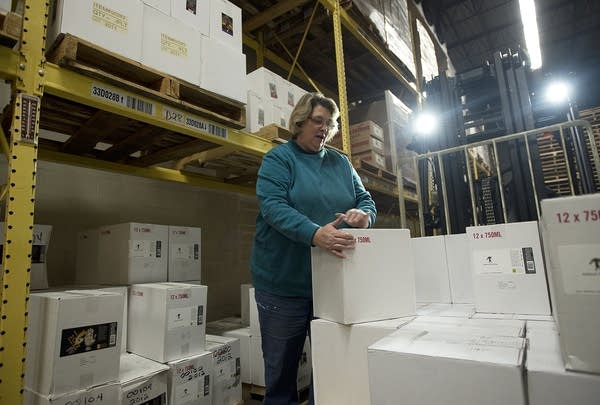Businesses vow to seek repeal of warehouse tax

Murphy warehouse personnel Tracey Baker moves products onto the shelves on Friday Nov. 22, 2013. Legislature passed a variety of new taxes on businesses during its last session, including one that will affect warehouse and storage services in Minnesota.
Amanda Snyder / MPR News
Go Deeper.
Create an account or log in to save stories.
Like this?
Thanks for liking this story! We have added it to a list of your favorite stories.


